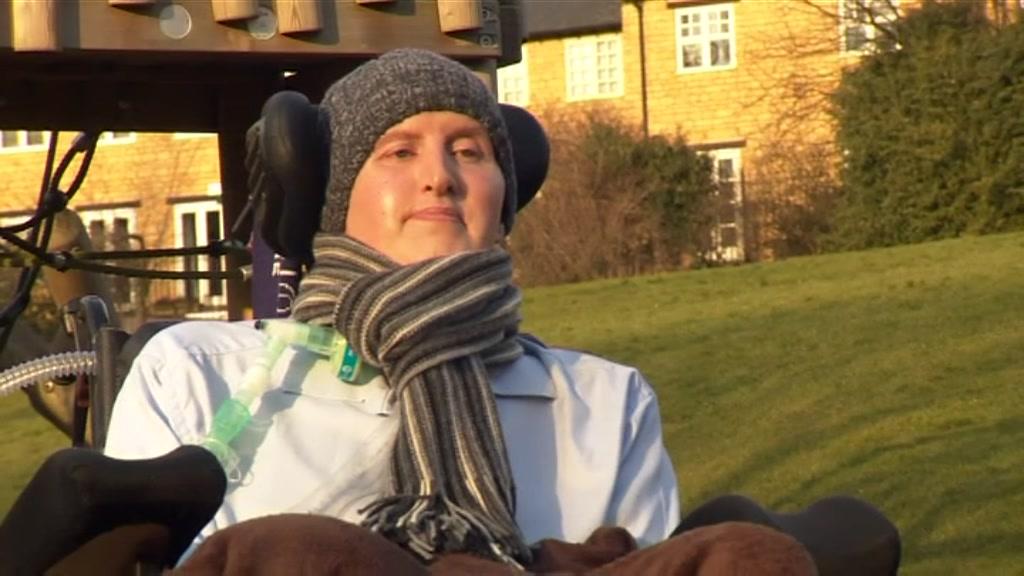Guillain-Barre syndrome: 'A cold stole my smile'
- Published
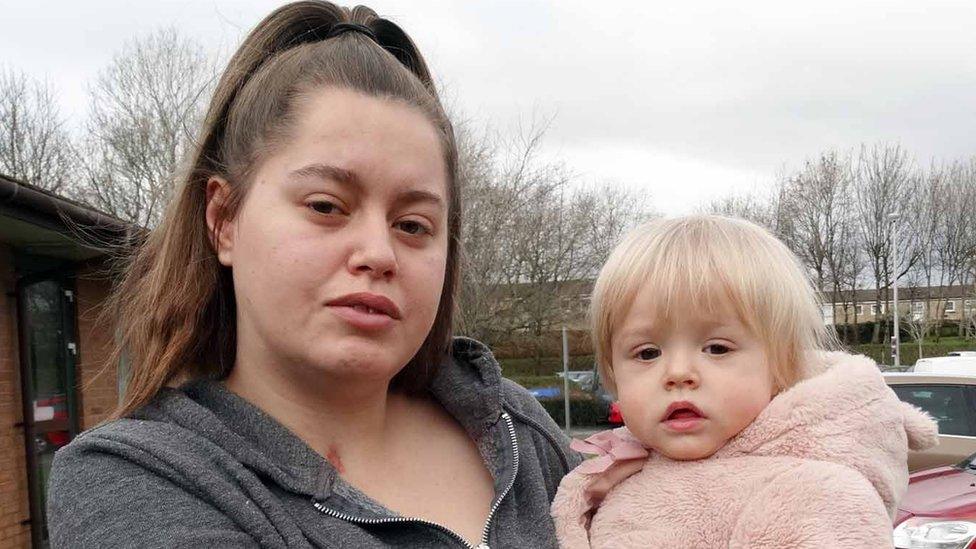
Aiysha's smile was taken away by a very rare illness
Almost a decade after learning to smile once again, a young mum was struck by a rare illness for a second time; all because of a cold.
Aiysha Hancock's face is partially paralysed as a result of Guillain-Barre syndrome (GBS).
GBS is thought to occur when something goes wrong with the body's immune system after an infection.
The 20-year-old from Porthcawl hopes to raise awareness of the condition, which affects just 50 people in Wales yearly.
It took Aiysha more than a decade to smile again after it struck the first time when she was three.
"Both times I had just a normal plain, basic cold and the cold went away and obviously, when it goes away you expect nothing else," she said.
"But after the cold disappeared, I had pins and needles throughout my legs.
"I tried elevating my legs, I tried walking it off, I tried everything I could think of. Throughout the day the pins and needles were getting worse and worse and worse."
In April 2018, she woke up in the early hours unable to move her legs. Fearing that GBS had struck again, her parents drove her straight to hospital.
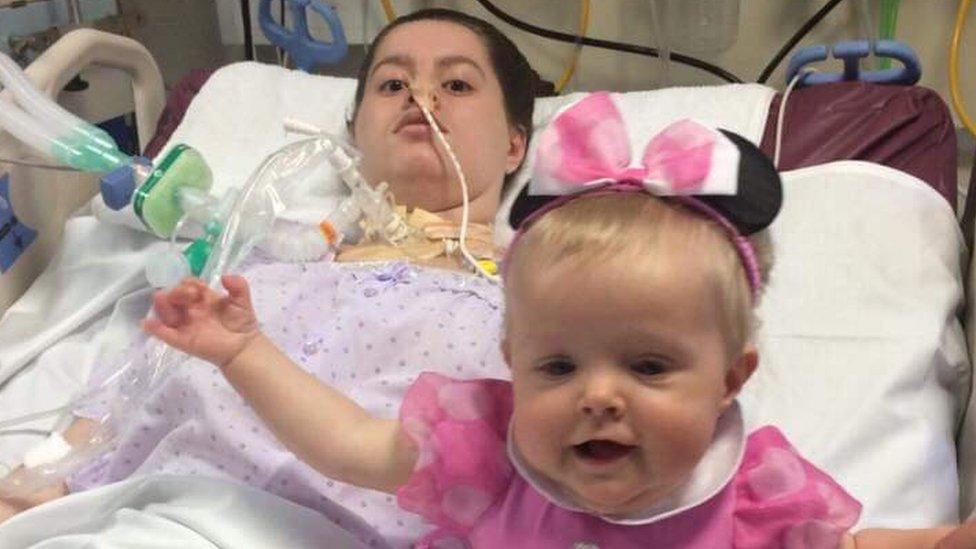
She was put to sleep for around one month
"I remember the person checking me over telling me that it's rare to get this illness, it's even rarer to get it twice," Aiysha said.
Tests were done, and the paralysis spread up Aiysha's body until she was unable to breathe independently.
"They put me to sleep," she said. "I'm not sure how long it was. I think it was a month."
Around a quarter of people who get GBS end up in intensive care.
"We've known about the disease for at least 100 years but we don't really understand what causes it," said Dr Richard Self, lead intensive care consultant at the Princess of Wales Hospital in Bridgend.

What is Guillain-Barre syndrome?
It's a very rare and serious condition which affects the nerves.
It mainly affects the feet, hands and limbs, causing problems such as numbness, weakness and pain.
The symptoms include numbness and pins and needles starting in the feet and hands before spreading to the arms and legs. You can also have muscle weakness, pain and problems with balance and co-ordination. In severe cases, you may have difficulty moving, walking, breathing and swallowing.
Around one in 20 cases is fatal.
It can be triggered by an infection, in extremely rare cases a vaccination, surgery, a medical procedure or an injury
Some people won't make a full recovery and are left with long-term problems such as being unable to walk without assistance, weakness in the arms, legs or face, numbness, pain or a tingling or burning sensation, balance and co-ordination problems and extreme tiredness.
Source: NHS UK, external

"Most people beforehand will have experienced a viral infection or maybe some gastroenteritis, some diarrhoea, and then it's thought this may trigger an immune disorder when the body attacks the nerves.
"Most people will get better, unfortunately about a quarter of people who suffer from this don't get completely better and may have long-term weakness and the whole experience of being this ill leaves long-term psychological consequences as well."
When she awoke, Aiysha was unable to speak but, through working with a speech and language therapist, she learned to communicate by choosing pictures of things she wanted using her eyes.

Aiysha had just regained her smile when the illness struck again
Eventually, she managed to return home to her partner Luke and daughter Aurora, then aged nine months.
But, she remains very weak and continues to suffer from occasional pins and needles and pains in her feet, legs and hands. She is yet to regain her smile.
'My body is a lot weaker'
"It affects me loads of different ways," she said. "My whole body is a lot weaker. I struggle to lift up the basic things most days.
"Normally, I'd be able to walk a good distance. But now, I can walk to the end of the street and some days I'll be absolutely knackered."
Now, she's set herself the goal of establishing a support group for people who have suffered from GBS, and to run a marathon one day.
"There's a lot of thoughts that go round in your head after it and while having it and you don't understand them," she said.
"If you knew someone with it or someone who has had the same experience as you, I think those thoughts would be a lot less."
- Published28 January 2016
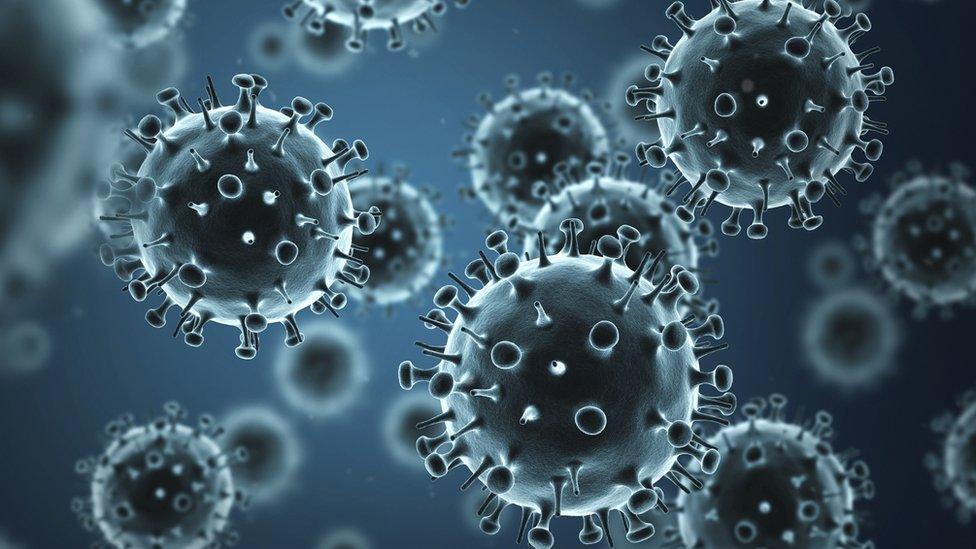
- Published22 September 2017
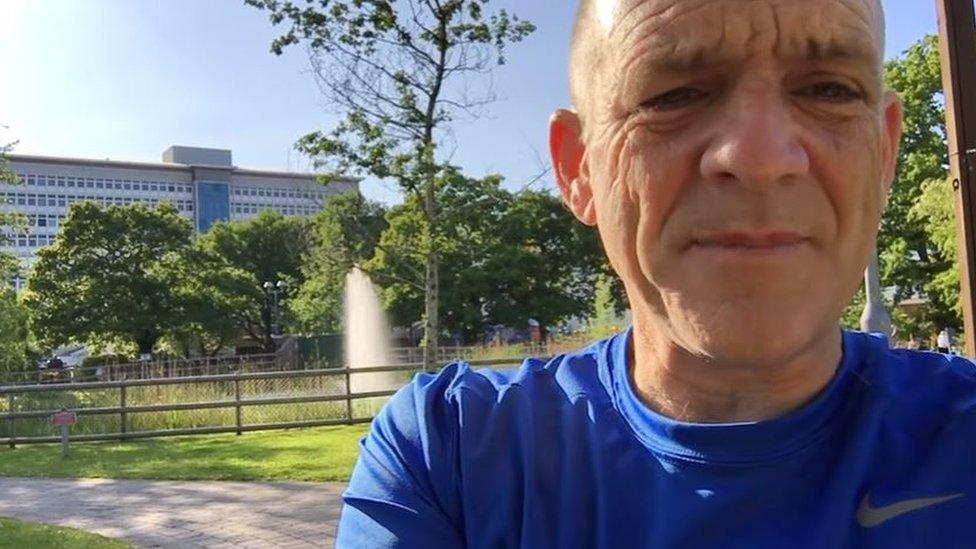
- Published18 March 2013
